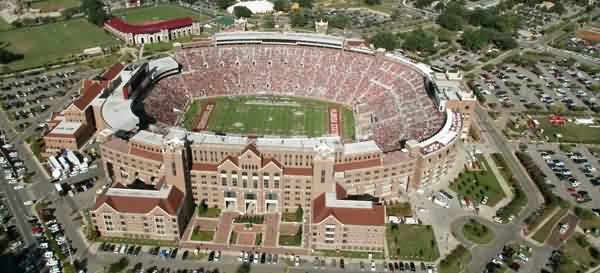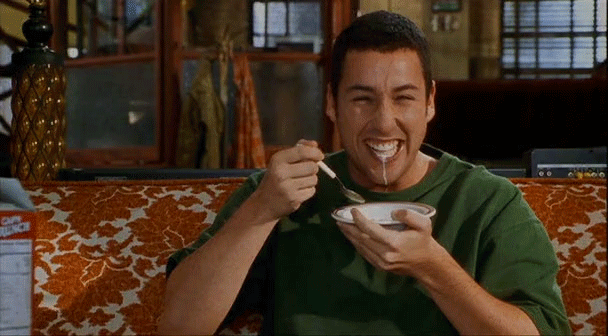FSU to examine name of Doak Campbell Stadium after calls for change
By: Ira Schoffel - Warchant.com
As it did three years ago when concerns were raised about the name of its College of Law building and other structures on campus, Florida State University is going to take a closer look at whether the school's high-profile football stadium should continue to bear the name of Doak S. Campbell.
FSU President John Thrasher announced his decision on Monday, saying that he is going to have athletics director David Coburn review the issue and make a recommendation.
Campbell, who served as university president from 1941-57 and oversaw the transition from Florida State College for Women to The Florida State University, is credited with leading the effort to have the stadium constructed in 1950.

Late last week, an online petition was started by former FSU football player Kendrick Scott, calling for Campbell's name to be removed from the stadium because he reportedly supported segregationist views during his tenure. As of early Monday afternoon, the petition had been signed about 2,100 times.
“I have been following with great interest the petitions circulating on social media asserting that Doak S. Campbell, FSU’s president in 1947 during its transition from the Florida State College for Women, resisted integration and asking that the stadium no longer bear his name," Thrasher posted on his personal Twitter account. "I have asked Athletics Director David Coburn to immediately review this issue and make recommendations to me. I look forward to receiving his report soon.”
After a period of racial unrest in 2017, Thrasher commissioned a panel of students, faculty, staff and alumni, "to examine and make recommendations on current university policies concerning campus names and markers, including statues and other recognitions."
As a result of that panel's research, Thrasher decided in 2018 to ask the Florida Legislature to remove B.K. Roberts' name from the College of Law Building. In announcing the decision, Thrasher explained that FSU wrestled with Roberts' "complicated legacy."
While praising Roberts for helping establish FSU's law school and also being one of the primary "architects" for the state's public defender program, the school also cited some of his pro-segregation opinions while serving on the Florida Supreme Court in the 1950s.
FSU also followed the panel's recommendations by deciding to remove the Francis Eppes statue from Westcott Plaza. Eppes, who has been credited with helping establish the institutions that led to FSU being located in Tallahassee, was a grandson of Thomas Jefferson and also a slave owner in the 1800s.
FROM THE TIGER FAN SHOP: Click HERE to check out all of our inventory, plus early summer DEALS on officially-licensed CLEMSON apparel!

By: Ira Schoffel - Warchant.com
As it did three years ago when concerns were raised about the name of its College of Law building and other structures on campus, Florida State University is going to take a closer look at whether the school's high-profile football stadium should continue to bear the name of Doak S. Campbell.
FSU President John Thrasher announced his decision on Monday, saying that he is going to have athletics director David Coburn review the issue and make a recommendation.
Campbell, who served as university president from 1941-57 and oversaw the transition from Florida State College for Women to The Florida State University, is credited with leading the effort to have the stadium constructed in 1950.

Late last week, an online petition was started by former FSU football player Kendrick Scott, calling for Campbell's name to be removed from the stadium because he reportedly supported segregationist views during his tenure. As of early Monday afternoon, the petition had been signed about 2,100 times.
“I have been following with great interest the petitions circulating on social media asserting that Doak S. Campbell, FSU’s president in 1947 during its transition from the Florida State College for Women, resisted integration and asking that the stadium no longer bear his name," Thrasher posted on his personal Twitter account. "I have asked Athletics Director David Coburn to immediately review this issue and make recommendations to me. I look forward to receiving his report soon.”
After a period of racial unrest in 2017, Thrasher commissioned a panel of students, faculty, staff and alumni, "to examine and make recommendations on current university policies concerning campus names and markers, including statues and other recognitions."
As a result of that panel's research, Thrasher decided in 2018 to ask the Florida Legislature to remove B.K. Roberts' name from the College of Law Building. In announcing the decision, Thrasher explained that FSU wrestled with Roberts' "complicated legacy."
While praising Roberts for helping establish FSU's law school and also being one of the primary "architects" for the state's public defender program, the school also cited some of his pro-segregation opinions while serving on the Florida Supreme Court in the 1950s.
FSU also followed the panel's recommendations by deciding to remove the Francis Eppes statue from Westcott Plaza. Eppes, who has been credited with helping establish the institutions that led to FSU being located in Tallahassee, was a grandson of Thomas Jefferson and also a slave owner in the 1800s.
FROM THE TIGER FAN SHOP: Click HERE to check out all of our inventory, plus early summer DEALS on officially-licensed CLEMSON apparel!



